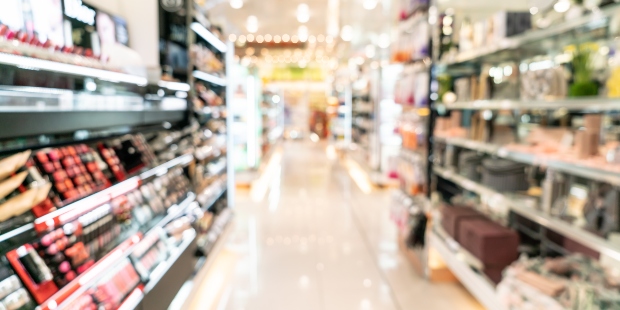If you’re thinking about expanding your brand into brick-and-mortar retail stores, finding the right retailer for your brand and its products is critical to a successful retail partnership. The right retailer, who likely shares some of your brand values while also attracting your target customers, will make a big difference in how much traffic you can get and how profitable the relationship will be—for both parties.
Discover some of the basics of different categories of retailers and get some questions to ask your brand to start identifying some best-fit retailers:
7 Types of Retail Stores to Consider
Your ideal customers are definitely shopping in more than one type of retailer—but it’s important to focus on the retailers where your customers are shopping for your industry’s products. Here are seven major categories of retailers to consider, and why your customers might be shopping in each one:
Clubs & Warehouses
Clubs and warehouses, such as Costco and Sam’s Club, offer their shoppers bulk and wholesale deals, which typically makes products cheaper than a big box store. Products in clubs and warehouse locations are sold in larger quantities which offers thrifty customers a deal. If you’re looking into this type of retailer, also consider that you can cut back some packaging for your products in order to offer a higher volume of product in one package.
Mass Retailers or Big Box Stores
Mass retailers, also known as big box retailers, include supermarkets and retail giants such as Target and Walmart, and they offer a variety of products across different categories. Shoppers come to these types of retailers to make a variety of purchases in different categories while only having to make one trip. These types of retailers can be great for driving impulse purchases for your brand (does anyone else leave Target with half a dozen things that weren’t on the shopping list?).
Luxury Retailers
If your product has a higher price tag or your customers value the experience of their shopping trips, you might consider a high-end or luxury retailer. These retailers are often smaller and offer a limited number of products in a specific category, such as beauty, fashion, or jewelry.
Shelving and products feel more spread out in a luxury retailer, lighting is custom set for the right ambiance, and the displays tend to be minimalistic. These elements help the space feel unhurried and unconcerned—ready to take or leave whichever customer is browsing the aisle. People who shop high-end brands are drawn to the high-quality product materials, branding, and the overall experience of luxury retail.
Boutique & Local Shops
Your local “mom and pop” shops and boutiques might be the perfect place to start if you are a smaller brand just getting started. Local shops often have a local following, and you may find that you have an easier time getting your foot in the door for a partnership.
Drug Stores
Drug stores like CVS, Walgreens, and Rite Aid are often smaller retailers that have a limited selection of a wide variety of items. While you might only have a few options for each thing, there are many different kinds of products in the store for the convenience of a customer.
The stores often feel a bit overwhelming because of how packed they are with items, signs, and deals, so your product’s packaging or display will have to be eye-catching and may work best when it creatively uses negative space to cut through the noise.
See how Bay Cities helped nail care brand, ella + mila, design a shelf display to succeed in Walgreens.
Specialty Big Box Retailers
Specialty big box retailers have a larger store footprint than a luxury retailer but are still focused on a specific product category, like Ulta, Home Depot, Best Buy, or Barnes & Noble. Shoppers come to these types of retailers usually in search of something specific, but are also great drivers of impulse purchases since shoppers come to these retailers in the mindset to shop the store’s speciality category.
While not as high-end as luxury retailers, these stores do create a more specific atmosphere for shopping with decor, layout, and lighting than a warehouse or mass retailer.
Discount Stores
Discount stores are often ideal for nearly expired goods, last season’s wares, and less expensive items. Depending on what you sell and the ideals of your target customers, the discount store could be the perfect place to sell your products. If your customers value a good deal or are more thrifty, a discount store might be a good choice. However, your brand could become associated as a cheaper alternative or not as great of a value if your target audience aren’t regular bargain shoppers.
Understand Your Customer & Your Retailer
Remember that retailers are offering their shoppers a specific experience and have their own brand values and goals, so there are differences between retails among these larger categories. Finding a retailer that aligns with your brand and your goals is critical to building a successful retail partnership. Before choosing a retailer to pursue a partnership with, answer these questions to help you determine a some potential best-fit retailers:
- What price point are your products in?
- Where do your customers shop for similar products?
- What lifestyle is associated with your brand, and what retailers align with that lifestyle? (ex. luxury vs. drugstore)
- What competitors are already in the space?
- What manufacturing capacity do you have, and could you meet higher order quantities for larger retailers?
Expanding your brand from ecommerce into retail or growing your retail presence is an exciting venture! Getting a coveted retail space for a display is even more exciting—if your brand has secured a retail display program, we’re here to help you design and develop the right display for your brand in your retailer’s space. With over 60 years of experience in retail displays, we’ve got the skills to help you navigate and meet the requirements of the fast-paced retail display environment.



/BC_Logo2_White.png?width=300&height=83&name=BC_Logo2_White.png)